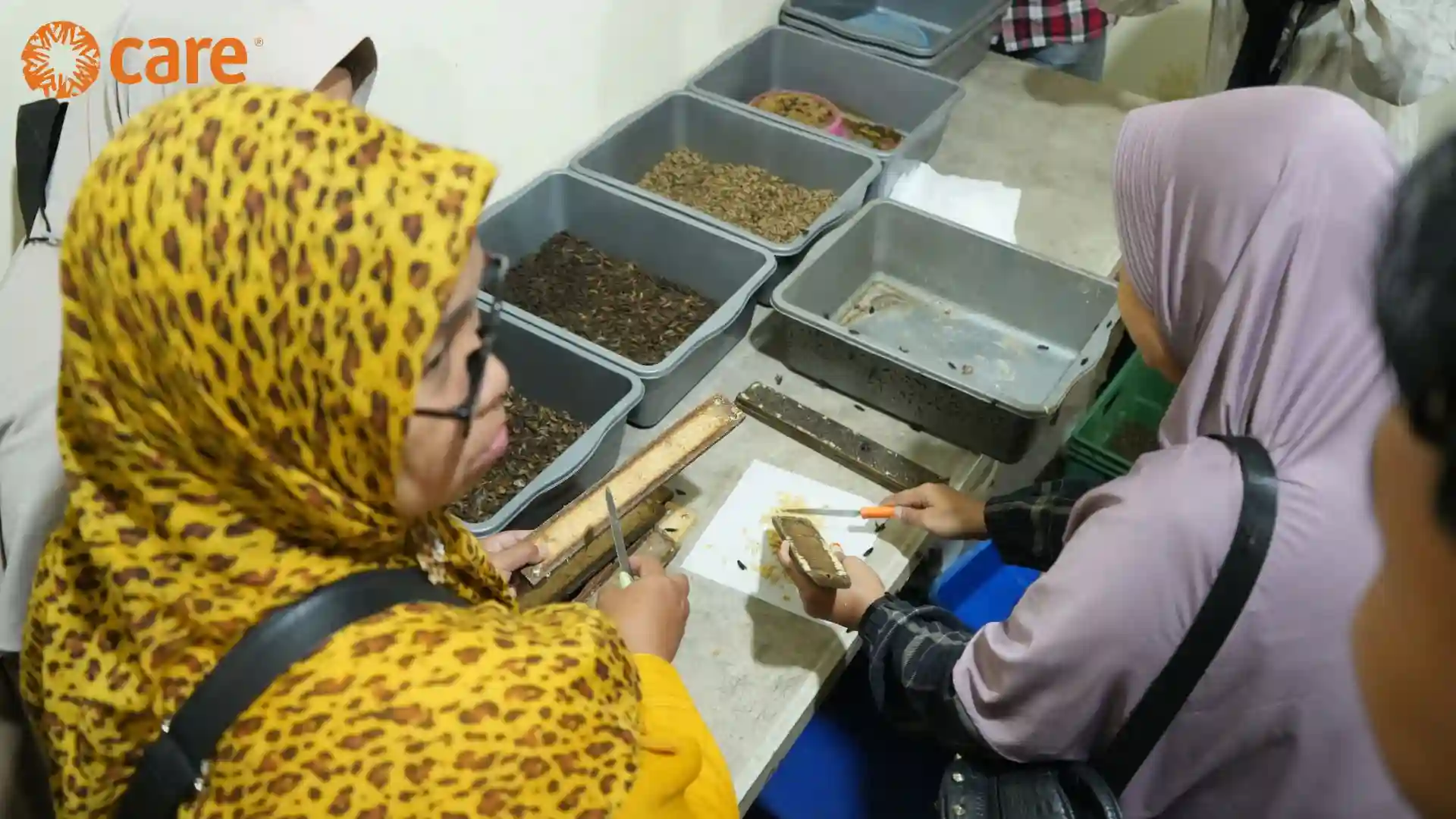Household waste management is now facing increasingly serious challenges. According to data from the National Waste Management Information System (SIPSN) in 2024, the household sector contributes 53.79% of the country’s total waste, primarily in the form of food waste. The City of Depok continues to experience a rise in household waste volume every day. Based on data from the Depok City Environmental and Sanitation Agency (DLHK), the amount of waste generated in 2024 reached an average of 1,100 tons per day, with 70 percent of it consisting of household organic waste.
In Beji Timur Subdistrict, where women make up the majority of the community group Karya Pemuda Beji Timur, residents have been managing household organic waste since March 2024. According to Roni, a member of the group, this initiative was launched to reduce the volume of waste sent to the Cipayung landfill, which is nearing overcapacity. They chose to cultivate Black Soldier Fly (BSF) maggots, as the larvae help decompose organic waste while also generating additional economic value.
To strengthen this women-led initiative, CARE Indonesia (Yayasan CARE Peduli/YCP), in collaboration with LPS Peduli and supported by the Depok City Government, established Maggot Centers in two subdistricts, Beji Timur and Jatijajar. The centers promote a circular economy by processing household organic waste through BSF cultivation, where the harvested larvae are later used as feed for chickens and catfish. The Maggot Centers also collect inorganic waste, which is then managed further through partner organizations.
“We want to raise public awareness to start sorting waste from home. This effort can also bring positive impacts, such as generating extra income and reducing the amount of waste sent to the Cipayung landfill,” said Roni.
Roni added that the additional income comes from cultivating BSF maggots that help decompose wet organic waste. Since March 2024, the group has successfully processed around 250 kilograms of organic waste.
“We hope our efforts in managing organic waste and cultivating maggots can inspire more people in the community to do the same. We also hope that inorganic waste can eventually be managed more effectively,” Roni continued.
Similarly, Nyai Salehah, a resident of Jatijajar Subdistrict, also sorts household waste before disposal. She said this initiative helps reduce the workload of sanitation workers who often have to collect foul-smelling organic waste.
“People in my neighborhood are used to separating their waste because we feel bad for the sanitation workers who have to handle the odor from organic waste. However, we still didn’t have a system to manage the separated waste. The Maggot Center program now helps us process both organic and inorganic waste so that they can have economic value,” she explained.
Meiry Nasution, Project Manager of CARE Indonesia, explained that community-managed Maggot Centers are expected to empower women by enabling them to earn additional income through maggot cultivation and sales. The centers also serve as collection points for inorganic waste, which is then distributed to partners who can reuse it.
“This approach aims to reduce methane emissions, lessen dependence on landfills, and turn organic waste into high-value economic products. The program also helps strengthen the local economy through maggot cultivation at the Maggot Centers,” Meiry said.
She added that positive initiatives like this should continue and require ongoing support from various stakeholders to further empower women and create a cleaner, more sustainable environment.


